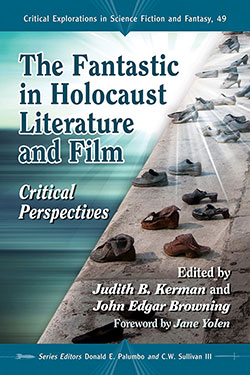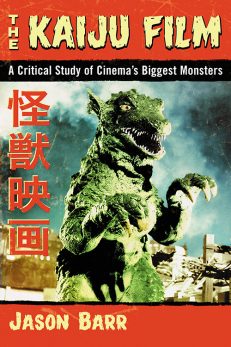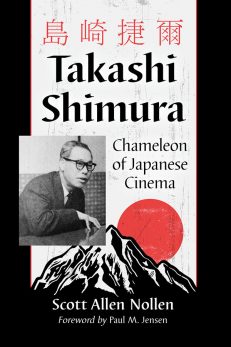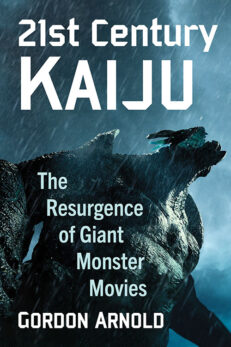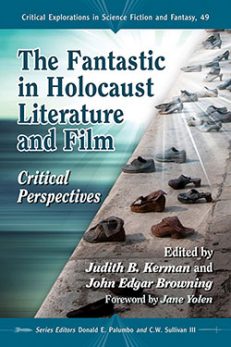The Fantastic in Holocaust Literature and Film
Critical Perspectives
$29.95
In stock
About the Book
When reality becomes fantastic, what literary effects will render it credible or comprehensible? To respond meaningfully to the surreality of the Holocaust, writers must produce works of moral and emotional complexity. One way they have achieved this is through elements of fantasy. Covering a range of theoretical perspectives, this collection of essays explores the use of fantastic story-telling in Holocaust literature and film. Writers such as Jane Yolen and Art Spiegelman are discussed, as well as the sci-fi television series V (1983), Stephen King’s novella Apt Pupil (1982), Guillermo del Toro’s Pan’s Labyrinth (2006) and Martin Scorsese’s dark thriller Shutter Island (2010).
About the Author(s)
Bibliographic Details
Edited by Judith B. Kerman and John Edgar Browning
Series Editors Donald E. Palumbo and C.W. Sullivan III
Foreword by Jane Yolen
Introduction by Gary K. Wolfe
Format: softcover (6 x 9)
Pages: 244
Bibliographic Info: 6 photos, notes, bibliography, index
Copyright Date: 2015
pISBN: 978-0-7864-5874-5
eISBN: 978-1-4766-1873-9
Imprint: McFarland
Series: Critical Explorations in Science Fiction and Fantasy
Table of Contents
Acknowledgments viii
Foreword: The Rumpelstiltskin Factor (Jane Yolen) 1
Editors’ Preface (Judith B. Kerman and John Edgar Browning) 3
Introduction: Fantasy as Testimony (Gary K. Wolfe) 7
Part I: Avenues of the Fantastic in Holocaust Literature
Uses of the Fantastic in Literature of the Holocaust (Judith B. Kerman) 13
The Fantastic in Holocaust Literature: Writing and Unwriting the Unbearable (Michael P. McCleary) 25
Surviving the Survivor: Art Spiegelman’s Maus (Joan Gordon) 37
The Fantastic Search for Hitler: The Führer’s Defense in His Own Words (Eric J. Sterling) 47
“Hidden in Plain Sight”: On Holocaust Fantasy in the Metaphysical Detective Story (Patricia Merivale) 65
The Summons of Freedom: Fantastic History in Jonathan Safran Foer’s Everything Is Illuminated (Paul Eisenstein) 82
Part II: The Holocaust and Fantasy Literature
The Last of the Just: Lifting Moloch to Heave (Jules Zanger) 103
The Door to Lilith’s Cave: Memory and Imagination in Jane Yolen’s Holocaust Novels (Ellen R. Weil) 111
Mother Goose Tales: Intergenerational Storytelling and the Holocaust in Jane Yolen’s Briar Rose and Peter Rushforth’s Kindergarten (Vandana Saxena) 122
The Devil’s Arithmetic and Time Travel: Truth and Memory (Carol A. Senf) 137
Part III. (Re)Imagining the Holocaust Through Horror, Humor and Science Fiction
A Holocaust Education in Reverse: Stephen King’s “The Summer of Corruption: Apt Pupil” (Leon Stein) 149
Holocaust-as-Horror, Science Fiction and the “Look” of the “Real/Reel” in V (1983) (John Edgar Browning) 163
A Dishonest Reckoning: Play-“Acting Through” Personal Trauma and the Shoah in Martin Scorsese’s Shutter Island (2010) (Kristopher Mecholsky) 174
Going Beyond Horror: Fantasy, Humor and the Holocaust (Caroline Joan (Kay) S. Picart) 193
Bibliography 213
About the Contributors 223
Index 227

